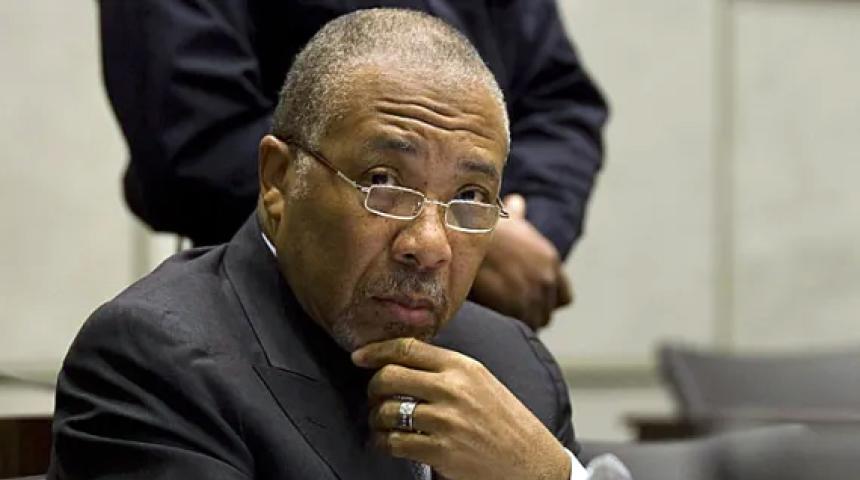The ECOWAS Court is expected today to issue a landmark ruling in a suit filed by former President Charles Taylor, over claims that the government of Liberia had violated his Human Rights by denying him pension and other benefits.
Taylor, a warlord-turned-president, has claimed that the action of the government violates his right to equal protection as guaranteed in the African Charter on Human and People’s Rights and the Universal Declaration on Human Rights.
The suit among other things is praying the Regional Court to mandate the Liberian government to pay what he is owed as the former president. He says he is entitled to pension and other benefits but has not been paid since he “resigned in 2003.”
Other requests by Taylor include staffing, security, and legally prescribed transportation for his wife and children for the rest of their lives. He also asked to be paid the sum of US$5,000 as solicitor’s fees as well as other incidental costs.
The jailed Liberian leader’s suit quoted several provisions of the African Charter on Human and Peoples Rights and the Universal Declaration on Human Rights as well as the country’s 2003 pension act relating to the office of the President and Vice President of Liberia.
Taylor’s suit against the government is however not the first at the ECOWAS Court. The wife of slain Liberian President, Samuel Doe, in 2016 sued the government for violating her human rights by denying her access to her husband’s bank account as well as pensions and other benefits — which she claimed she deserved as a former first lady.
Citing some Articles in the African Charter on Human and People’s Rights and the Universal Declaration of Human Rights, Nancy Doe prayed the Court to declare the government of Liberia’s action a violation of her rights.
And in 2019, the Court sided with Doe’s argument and ordered the government to pay the sum of US$18 million. However, the government is yet to honor the Court’s ruling and it is unclear if they will do so in Taylor’s case if he wins.
While the decision of the Court is binding and cannot be appealed, successive postwar administrations of the Liberian government have challenged the jurisdiction of the Court — making the enforcement of the Court’s mandate difficult.
Under Article 24 of the Protocol establishing the Court, ECOWAS member states are required to execute the Court judgment according to its national courts. It says the member state must also determine the national authority to execute the Court’s judgment.
This voluntary enforcement means ruling in the case of Doe or that of former impeached Associate Justice Kabineh Ja’neh, which may take years to be enforced or may not. Ja’neh, a few years ago, sued the Liberian government for violating his right to a fair hearing when he was being impeached.
Ja’neh’s removal, according to the ECOWAS Court, was adjudged illegal and he should be paid US$25 million as compensation, along with the restoration of his position.
And in the case of Taylor, the government, while questioning the legitimacy of the ECOWAS Court — is also praying that the same Court denies the former Liberian leader’s lawsuit.
According to the government, Taylor is not qualified for the entitlements since he did not retire ‘honorably’, which the government argued would mean “voluntarily quitting office, having reached a certain age.”
The government also claimed that in view of the country’s prevailing political and military situation at the time, Taylor negotiated and accepted an arrangement to resign, which cannot be equated to retirement.
Under the arrangement, the government said, Taylor resigned and was exiled to Nigeria where he was arrested while trying to flee, and ultimately sent for trial at the Special Court for Sierra Leone, which landed him in prison for five decades for war crimes.
Taylor sparked a 13-year civil war in Liberia when he led a rebellion in 1989 to oust President Samuel Doe, which escalated into one of Africa’s bloodiest conflicts. He is serving a 50-year sentence in a UK prison after being convicted in 2012 by a court in The Hague for fuelling civil conflict in Sierra Leone.
Taylor was the first ex-head of state to be jailed by an international court since the Nazi trials at Nuremberg in Germany after World War II. He was convicted on 11 counts of war crimes and crimes against humanity over acts committed by Sierra Leone rebels he aided during the war.

